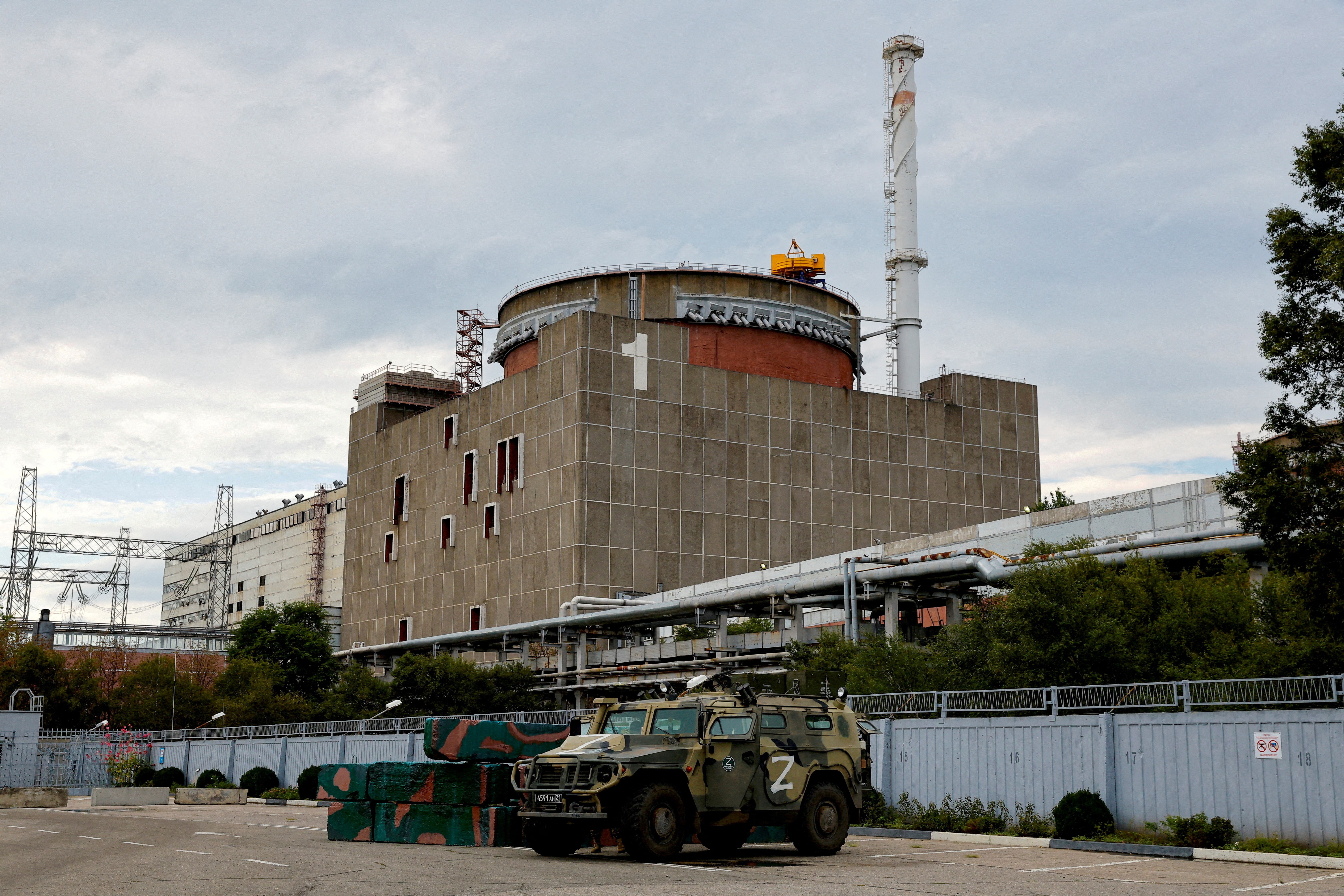ZNPP under no threat after Kakhovka dam disaster: Ukraine Ambassador
The Ukrainian Ambassador to the United Nations says the Zaporozhye Nuclear Power Plant is under no immediate threat after the Khakohvka dam was heavily damaged.
-

A Russian armored vehicle is stationed outside the Zaporozhye Nuclear Power Plant in Zaporozhye, Russia, on September 1, 2022 (Reuters)
The Zaporozhye nuclear power plant (ZNPP) is not currently facing an immediate threat, although the situation there is complex but under control, the Ukrainian Ambassador to the United Nations Sergiy Kyslytsya said at a meeting of the UN Security Council.
"As of now, there is no immediate threat to ZNPP. The situation is complex, but under control," Kyslytsya stated at the meeting.
The meeting comes after, Russian Ambassador to the United Nations Vassily Nebenzia declared that his country seeks a Security Council meeting over what he described as Ukrainian attacks that triggered major flooding in the Kherson region. Ukraine has also requested a UNSC meeting.
"We will call one. Urgent one. I don’t know exactly the timing," Nebenzia explained to reporters.
On Tuesday, the Kakhovka power station was damaged, leading to uncontrolled water flow downstream. This situation presents a potential danger of significant flooding, power disruptions, and shortages of water on both banks of the Dnieper River.
As a result, three communities in the Kherson Region's Nova Kakhovka district have been entirely flooded after the hydroelectric power station was destroyed, according to district director Vladimir Leontiev on Tuesday.
Shelling earlier in the day destroyed the top portion of the Kakhovka facility, and according to local officials, the dam's construction was partially undermined by shelling, resulting in the demolition of three spans under water pressure.
The Zaporozhye NPP, situated on the left bank of the Dnipro River and is Europe's largest nuclear plant, used to supply around 20% of Ukraine's electricity and continued to function in the early months of the war, before halting power production in September.
The power plant went under the control of Russian forces in March 2022 and has since been subjected to repeated shelling, sparking widespread international concern, given the potential risks of a nuclear disaster. In a concerning development, on October 5, the ZNPP was officially handed over to Russian institutions, aligning with the directives issued by Russia's President Vladimir Putin.

 2 Min Read
2 Min Read








